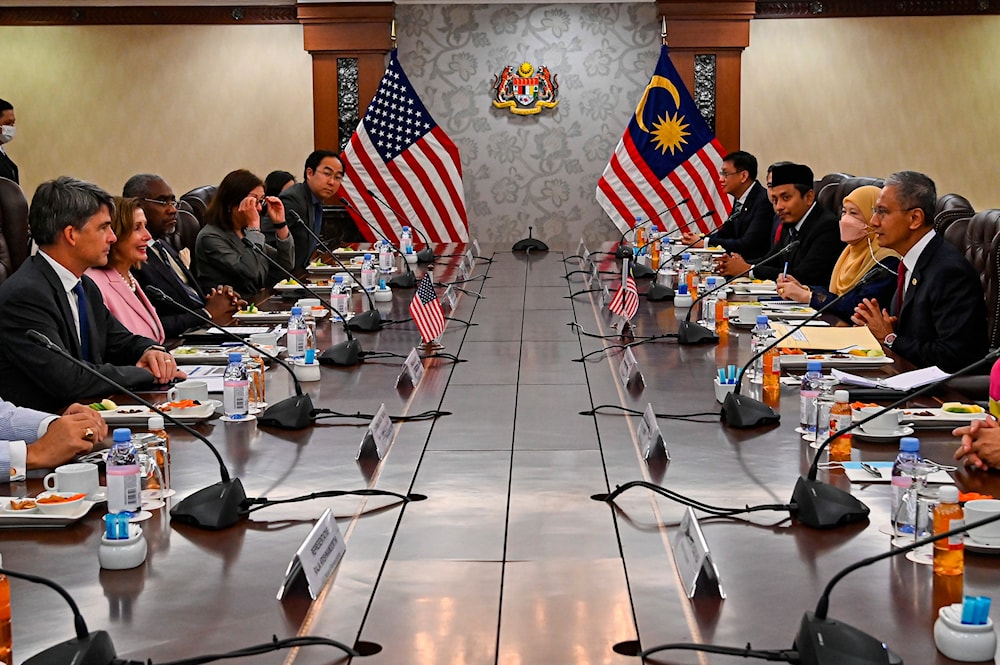US tries to pressure Southeast Asia into sanctioning Iran: Bloomberg
US Treasury officials are visiting Southeast Asian countries hoping to enforce restrictions on Iran and Russia.
-

United States House Speaker Nancy Pelosi, second left, meets with Malaysia Parliament speaker Azhar Azizan Harun, right, at the parliament house in Kuala Lumpur, Malaysia, on August 2, 2022. (AP)
The United States is attempting to rally the support of Southeast Asian countries to implement further sanctions on Iran and its allies in the Axis of Resistance.
An unnamed senior US Treasury official made the revelation during a visit of American officials with Southeast Asia oil industry executives, regulators, and financial institutions to ensure the enforcement of sanctions on Russia and Iran, according to Bloomberg.
Washington is accusing Iran and "groups like Hamas" of soliciting money in Southeast Asia.
Specifically, the US is attempting to tighten its unilateral sanctions on Russia by involving Southeast Asian entities in the process, which involves cutting off pathways for the sale of Russian oil and Moscow's sourcing of critical dual-use components from the region.
However, Iran has been the main focus of US officials in the region, given its historically friendly ties with countries like Malaysia. Earlier, the US administration passed a package of measures, which includes sanctioning foreign ports, vessels, and refineries that process or ship Iranian crude.
The sanctions would also attempt to enforce restrictions on all oil-related transactions with US-sanctioned Iranian banks. US officials are attempting to utilize the supposed environmental risks of dealing with Iran-affiliated vessels to pressure Malaysia into colluding with Washington.
Read more: Malaysia defies US sanctions, renews Palestinian Resistance support
Iran's oil exports skyrocket
In the 12 months up until the end of March 2024, Iran's oil exports reached $35.8 billion, Iran's head of Customs Mohammad Rezvanifar said today, as reported by the Iranian Labour News Agency.
Even though the US renewed its sanctions on Iran in 2018, Chinese-Iranian trade, specifically Chinese purchases of Iranian oil, has aided Iran in keeping a positive trade balance.
Iran's total trade witnessed a 2.6% year-on-year increase, hitting a value of $153 billion, of which $86.8 billion was Iranian exports, Rezvanifar added.
As Tehran continues to cement its position in global trade, away from the US-controlled financial system, the country grows as an economic power. Oil sales are essential for the development of Iran's industrial sectors, which further spur the country's goal of economic independence.
Considering that Iran is a threat to American hegemony in West Asia, specifically to the Israeli regime and other US military assets, Washington has gone back to reinforcing restrictions on the inevitable rise of Tehran as a regional and possibly global leader.
Read more: $2.879bn Iran-China trade value in Jan-Feb, 37% higher than 2023

 3 Min Read
3 Min Read








